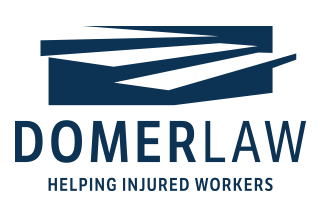Workers’ Compensation: Restoring Your Earning Capacity
If you are an injured worker with permanent restrictions, that may mean your company cannot rehire you. If your employer cannot take you back, you are entitled to benefits that will allow you to restore your earning capacity, including loss of earning capacity claim or a vocational retraining claim (depending on your type of injury).
“An injured worker can receive compensation for both permanent functional disability and permanent vocational disability (for certain types of injuries). Functional disability generally is determined by a treating practitioner, while vocational disability is assessed by vocational experts who understand the labor market.” – Attorneys and authors Tom and Charlie Domer, from their book, “Wisconsin Workers’ Compensation Law”
What Happens If You Cannot Go Back To Work?
If your employer is unable to accommodate your permanent restrictions, you may be able to pursue a loss of earning capacity claim (generally for back injuries, neck injuries, head injuries or spine injuries). We can arrange an appointment with a vocational expert who knows the labor market and will assess your loss of earning capacity. We can get you compensation for your lost ability to earn wages.
Returning To School After An Injury
If you cannot return to work with permanent limitations, you may be able to receive retraining benefits that enable you to go back to school. A Division of Vocational Rehabilitation (DVR) counselor or vocational expert will help you with the retraining process if you are motivated to return to school. Usually, a vocational counselor will assist you in determining what kind of vocational retraining would be good for you as well as where you can go to school. If retraining is an option for you, you still can get paid weekly benefits (at two-thirds of your injury wages) while in school, plus compensation for mileage, meals (while at school), parking, tuition and books. This package of school benefits will allow you to get retrained into a new career to allow you to restore your earning capacity to what it was before the injury.
If you have permanent restrictions, cannot return to work and are motivated to return to school, contact Domer Law, S.C.. Most insurance companies do not voluntarily pay for retraining or offer these programs. Attorneys with experience in workers’ compensation law can pave the way to a job future you didn’t know you could have.
We Wrote The Book On Wisconsin Workers’ Compensation Law
At Domer Law, S.C., we wrote the book on workers’ compensation law in Wisconsin. Our lawyers teach workers’ compensation law to law students and other attorneys.
We can help set up an appropriate DVR-sponsored school program to make sure that you get the full workers’ compensation benefits due to you, including retraining or loss of earning capacity benefits.
Contact Us Today
With 80 years of combined experience, we know Wisconsin workers’ compensation law inside and out. Our office is in Milwaukee, and we represent injured workers throughout Wisconsin. Consultation is free. There are no attorney fees unless we prevail. Call Domer Law, S.C., at 414-279-2647 or contact us online.

